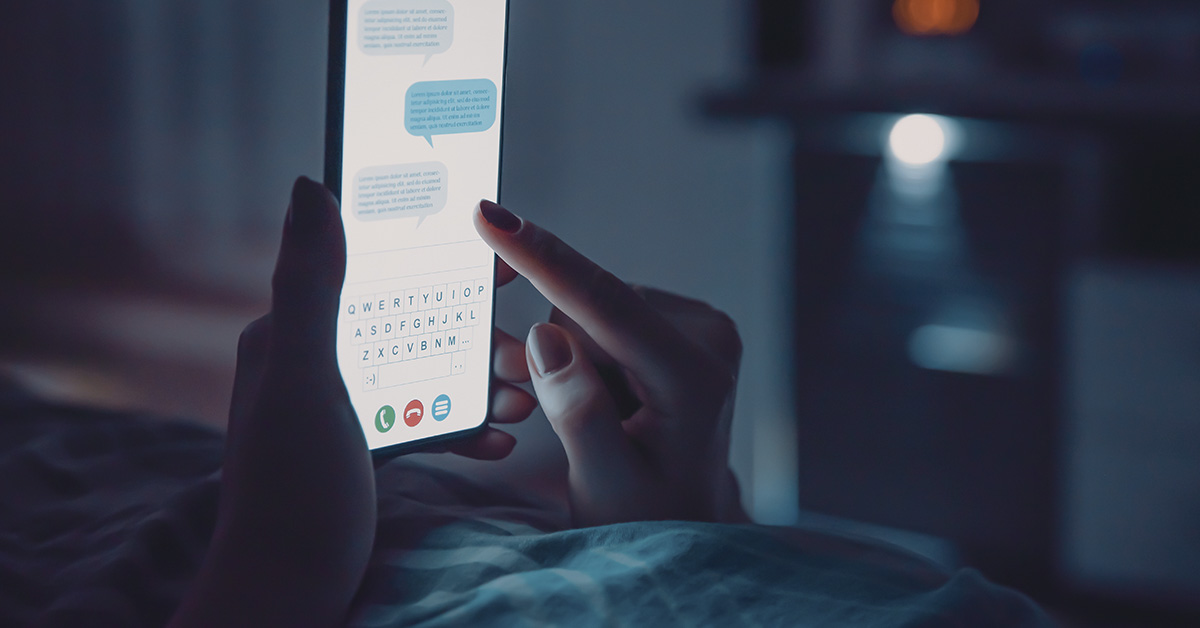Cancer is one of the number one causes of death around the world. Researchers are constantly working to understand the disease more so we can better treat it, avoid it, and hopefully, one day, cure it. Could taking your phone to bed increase your risk of certain cancers? Studies have shown that people with more nighttime blue light exposure have an increased risk of breast, prostate, and colorectal cancer.
Nighttime Blue Light Exposure May Increase Risk of Cancer
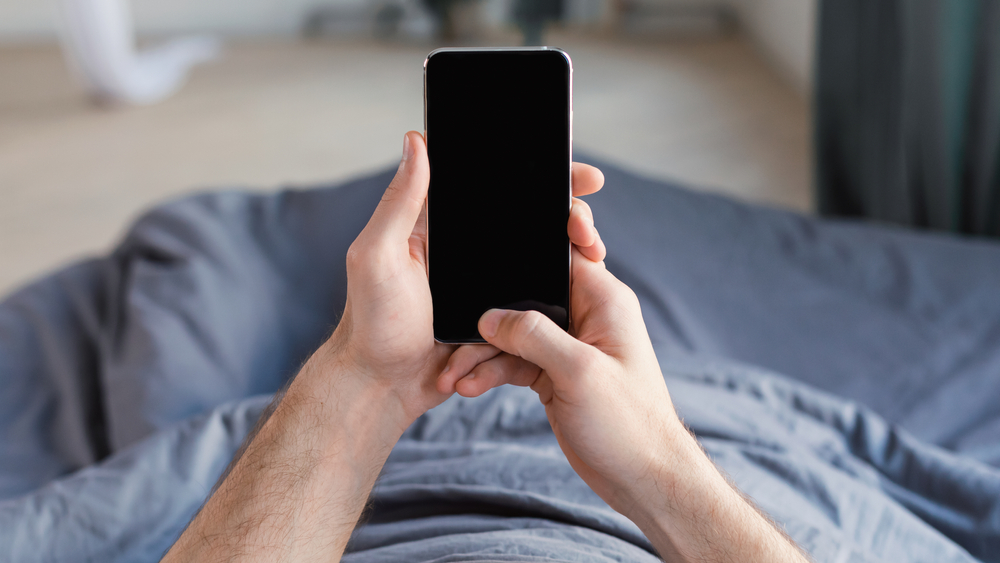
Knowing the impact of a disrupted sleep cycle on health, some researchers in Spain decided to look at one of the modern day’s biggest sleep invaders: Blue light. Their study showed that those exposed to high levels of outdoor blue light at night had around a 1.5-fold higher risk of developing breast cancer and a twofold higher risk of developing prostate cancer compared with those who were less exposed. According to the study, men exposed to high levels of indoor artificial light also had a 2.8-fold higher risk of developing prostate cancer. They also found that high levels of blue light exposure – from the likes of LED street lights and advertisement billboards – are associated with “a 60% increased risk” of bowel cancer.
“This is the first study to put an experimental value on the correlation between blue light in the general population with the risk of breast cancer and prostate cancer.” said lead author Alejandro Sánchez de Miguel. (1)
The researchers took into account all the relevant data, including lifestyle factors of the participants, their family history, age, background, and personal health history, as well as whether or not they worked shift work. They used satellites to see how much blue light each of the 2000 participants was exposed to depending on where they lived. They then paired similar participants from the cancer group with those who didn’t have cancer. This is how they realized that blue light exposure at night affects your cancer risk. While they did not specifically look at the light coming from phones and tablets inside people’s homes, these are still very interesting results. (2, 3)
“That finding was unexpected but suggests that it is really the blue light that is important for cancer rather than just general brightness of light,” said Kristen Knutson, associate professor of neurology at Northwestern University’s Feinberg School of Medicine, who was not involved in the new study.
Read More: 4 Early Symptoms Of Ovarian Cancer That Every Woman Needs To Know
What is blue light?

Blue light is part of the visible spectrum and is emitted from various sources, including smartphones, tablets, televisions, and computer screens. It is associated with problems such as age-related macular degeneration, cataracts, and eye cancer. Blue light has also been shown to disrupt the production of melatonin which can negatively affect sleep quality. (4)
Poor sleep quality is associated with a vast number of illnesses and conditions. These include:
- Cancer
- Heart disease
- Type 2 diabetes
- Obesity
- Alzheimer’s Disease
- Dementia
- Depression
Because of the association between blue light exposure and poor sleep quality, some researchers have suggested that reducing the amount of blue light one is exposed to could help improve overall health. Implementing strategies such as using blue light filters on electronic devices, wearing blue light-blocking glasses, and reducing screen time before bed could potentially enhance sleep quality and overall well-being.
How To Improve Your Sleep
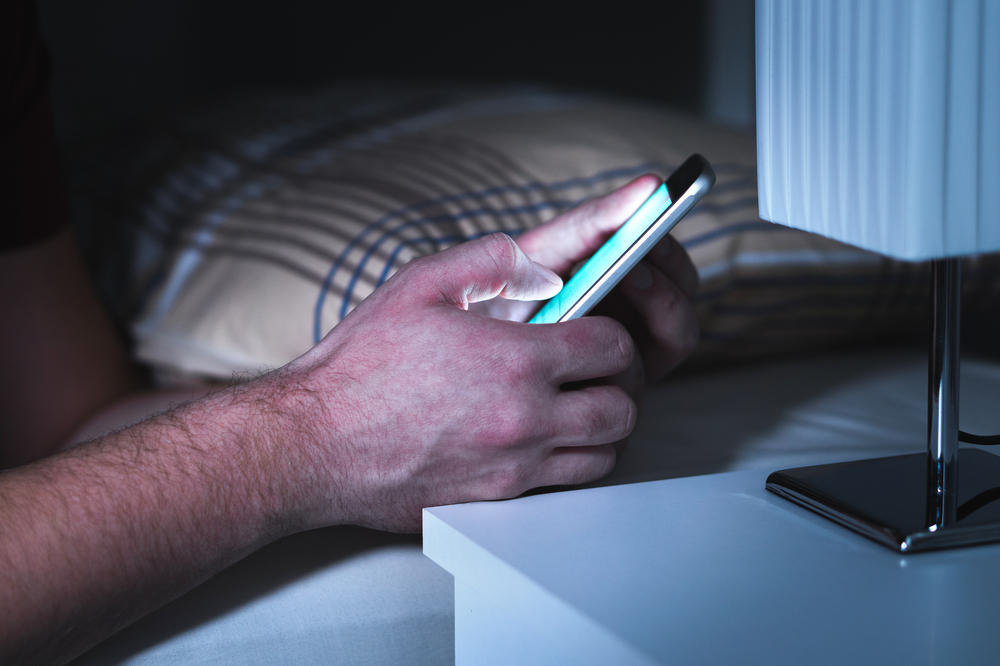
If you are concerned about how your sleep (or lack thereof) might be affecting your health, there are several things you can do to improve it. This includes both sleeping longer and with better quality.
- Go to bed and wake up at the same time every day. This will help your body establish a regular sleep schedule and can help improve sleep quality.
- Lower the temperature in your bedroom at night. Studies have shown that keeping it cool can make falling asleep easier as well as improve sleep quality overall.
- Practice relaxation techniques before bed such as meditation or deep breathing exercises.
- Avoid using your phone or computer before bed. The light from these devices can affect sleep quality and make it harder to fall asleep.
- Exercise regularly. Studies have found that people who exercise regularly tend to sleep better than those who don’t.
- Avoid eating heavy meals before bedtime. A heavy meal can make it harder to fall asleep, so try not to eat for at least two hours before bedtime.
- Reduce noise in the bedroom by turning off fans or air conditioners and closing windows if necessary.
- Use blackout curtains or eye masks if light bothers you when falling asleep.
- Reduce stress. Stress can cause sleep problems, so try to find ways to reduce stress in your life.
- Get enough sunlight during the day. Exposure to sunlight helps keep your circadian rhythm on track and may improve sleep quality as well.
- Consider supplements. Many supplements will help you sleep better at nighttime. Personally we like the Sleep 8 Ultra with Melatonin.
Read More: Finger Test For Lung Cancer Could Determine Cancer Risk
The Bottom Line
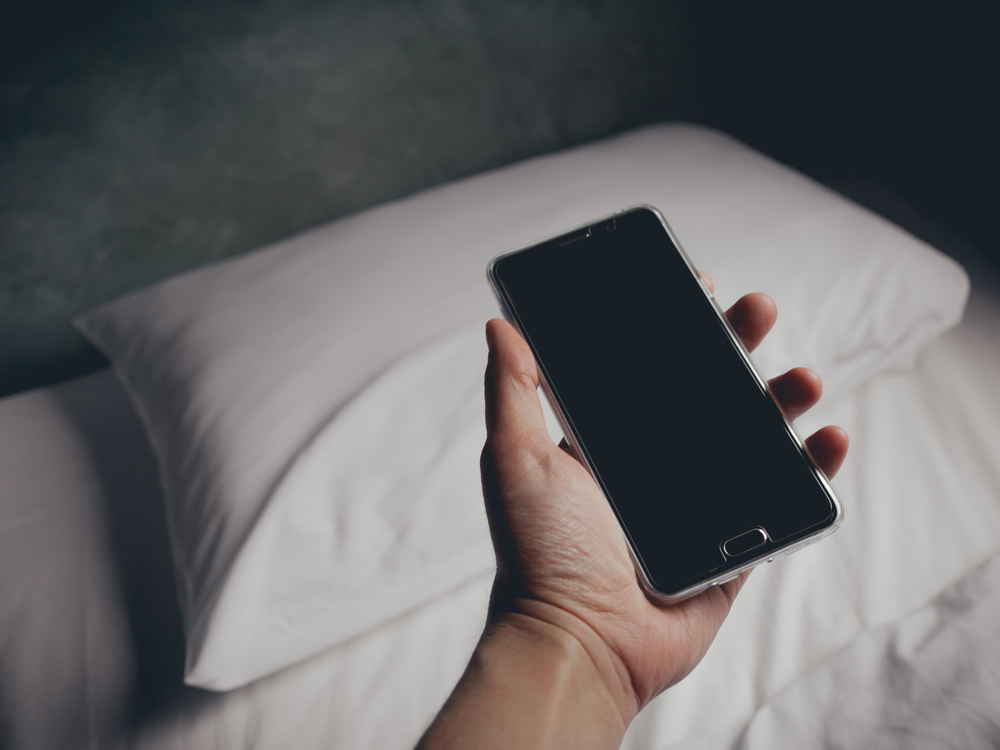
Blue light should most likely be limited, and excess isn’t good for your health. Blue light can come from outside of your home but also from the electronics you use. Consider limiting your exposure to blue light as best as possible, including using blue light glasses while working. Finally, practice good sleep hygiene and keep your phone and laptop out of the bedroom – your sleep cycle will thank you for it.
Sleep 8 Ultra with Melatonin
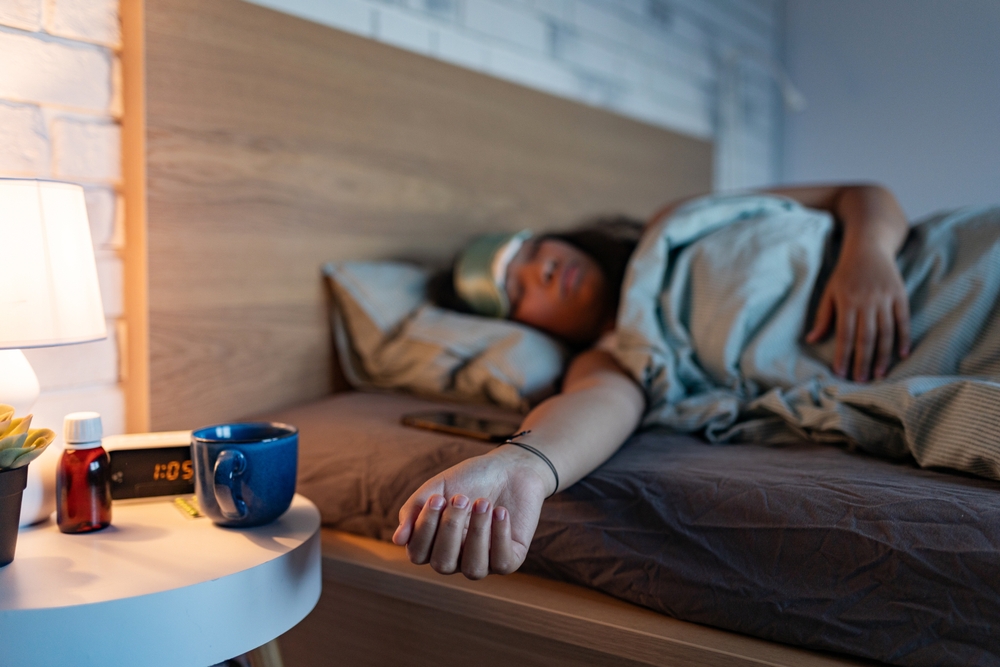
If you decide to try supplements to help you get a better night’s rest, we love New Roots Sleep 8. New Roots ensures that all ingredients that enter their facility are tested three times over for identity, contaminants such as mycotoxins (aflatoxins), PCBs, over 80 different pesticides, heavy metals, microbiology (bacteria), mold, and fungus thus ensuring the highest quality. Get your 30 day supply (60 soft gels) at The Health Shop for $30.49 while supplies last! The ingredients include:
- GABA: A neurotransmitter that’s naturally produced in the brain. It helps balance your mood and calm down the nervous system.
- L-theanine: An amino acid that helps you relax without feeling groggy in the morning. In addition, it also improves cognitive function and boosts energy levels!
- Melatonin: This hormone is naturally released by the pineal gland in your brain. It helps regulate your sleep cycle by making you feel drowsy when it’s time to go to bed and energized when it’s time to wake up.
- Lemon Balm: This herb is commonly used to help reduce anxiety and improve sleep quality. It’s also a mild sedative that can be helpful for insomnia.
- Herbal Blend: The blend of passionflower, skullcap, catnip, Panax ginseng, hops, and chamomile is a great combination for calming the nervous system. It can help relieve stress and anxiety, which are common causes of poor sleep quality.
This site contains product affiliate links. We may receive a commission if you make a purchase after clicking on one of these links.
Read More: New Research Says Honeybees Can Detect Lung Cancer In Humans
Sources
- “Blue light like that from smartphones linked to some cancers, study finds.” CNN. Mark Lieber. April, 2018.
- “Evaluating the Association between Artificial Light-at-Night Exposure and Breast and Prostate Cancer Risk in Spain (MCC-Spain Study).” EHP. Ariadna Garcia-Saenz, et al. April 2018.
- “Outdoor blue light exposure could increase risk of bowel cancer, study finds.” Sky News. July 30, 2020.
- “How blue light affects your eyes, sleep, and health.” UC Davis. Cultivating Health. August 3, 2022.
- “New Roots Herbal Sleep 8 Ultra 60 Veg Capsules.” Health Shop Online
